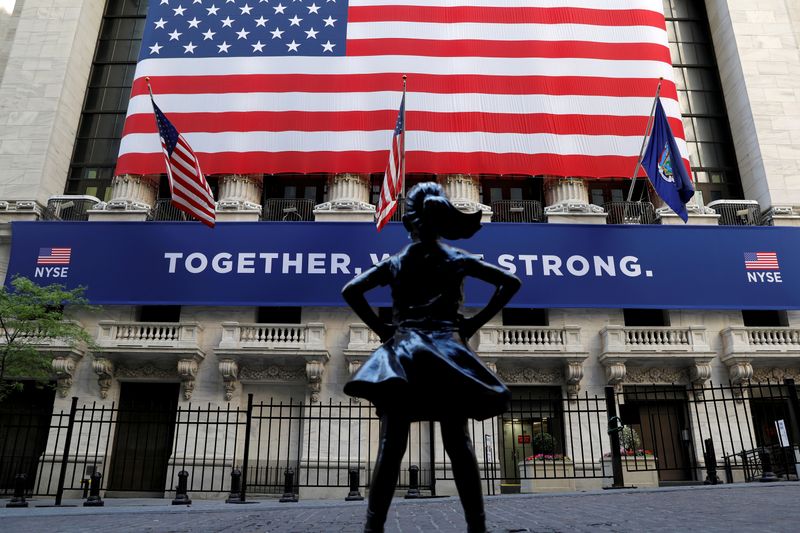This post was originally published on this site
https://i-invdn-com.akamaized.net/trkd-images/LYNXMPEG7R1K3_L.jpg
NEW YORK (Reuters) – U.S. stocks are rallying, but so too is Wall Street’s “fear gauge,” in an unusual twist.
The Cboe Volatility Index (VIX) was set for a second week of gains, despite a drop on Friday, even as the benchmark S&P 500 (SPX) has climbed nearly 3% for the week. That is a departure from typical activity, in which the VIX falls as stocks rise.
Yet steep climbs higher can also contribute to greater volatility. The S&P 500 is on track for nearly a 7% monthly gain, exceeding the expectations priced into options, said Christopher Murphy, co-head of derivatives strategy at Susquehanna Financial Group. The steady rise in stocks has spurred purchases of upside calls on the benchmark index, which in turn are lifting the VIX.
“Just because (the S&P 500) is up doesn’t mean there isn’t volatility,” Murphy said.
Federal Reserve Chair Jerome Powell’s remarks regarding the central bank’s approach to inflation also likely prompted call buying, said Matt Thompson, managing partner at options firm Thompson Capital Management.
The Fed will now aim for 2% inflation on average, so that periods of too-low inflation would likely be followed by an effort to lift inflation moderately above that level. As a result, the central bank is likely to keep rates near zero, thereby supporting equities.
“That gave the green light to put bets on the upside,” Thompson said.
Longer-term, however, downside concerns for the overall market may also keep the VIX bid up. Some investors have pointed to concerns that a narrow group of tech-related stocks such as Apple Inc (O:AAPL) and Amazon.com Inc (O:AMZN) is leading the S&P 500 higher, prompting concerns about any slides in their performance. Moreover, VIX futures <0#VX:> point to elevated volatility expectations around the U.S. presidential election on Nov. 3.
“If election volatility stays at that level, you could see the VIX marching higher,” Murphy said.

